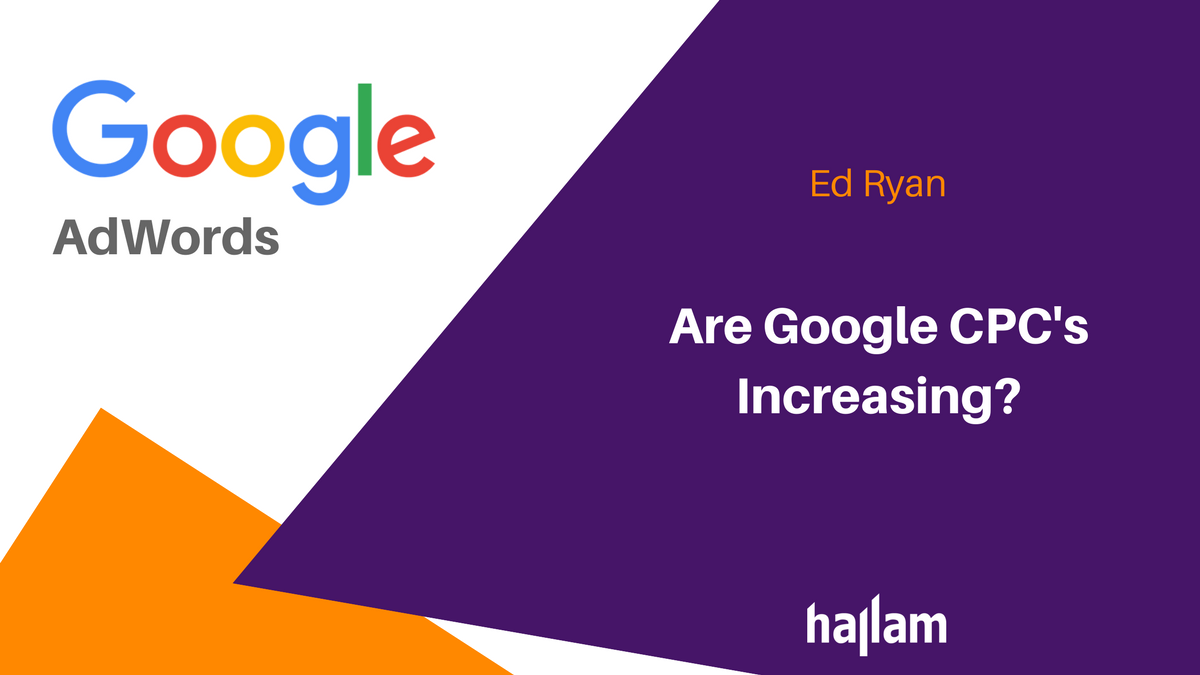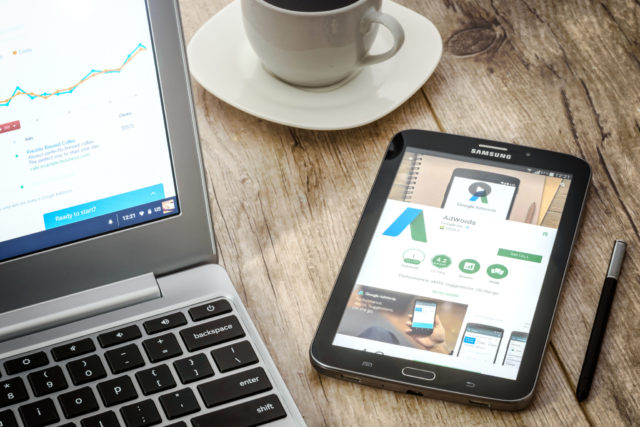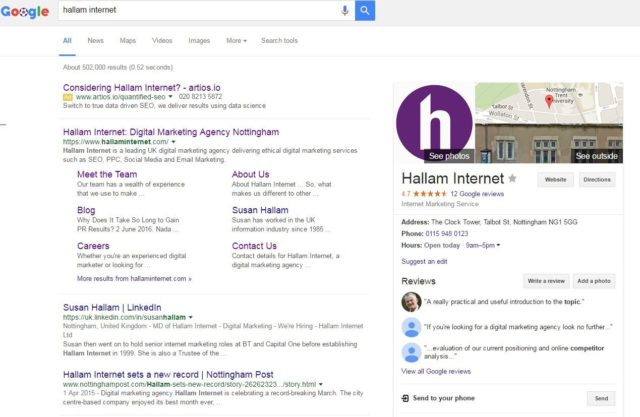If you’re experiencing increasing Google CPCs, then this post may shed a little light as to why, or at least allow you to make more informed choices; as I look at how brand CPCs have changed over time.
I recently had a conversation with one of my colleagues about how advertising is slowly pushing organic results further down the fold. Ads have become increasingly segmented with more area dedicated to elements that increase their prominence e.g. extensions. This got me thinking: if organic results are being pushed further down below the fold, then what is happening to the CPCs over time? Are they getting more expensive?
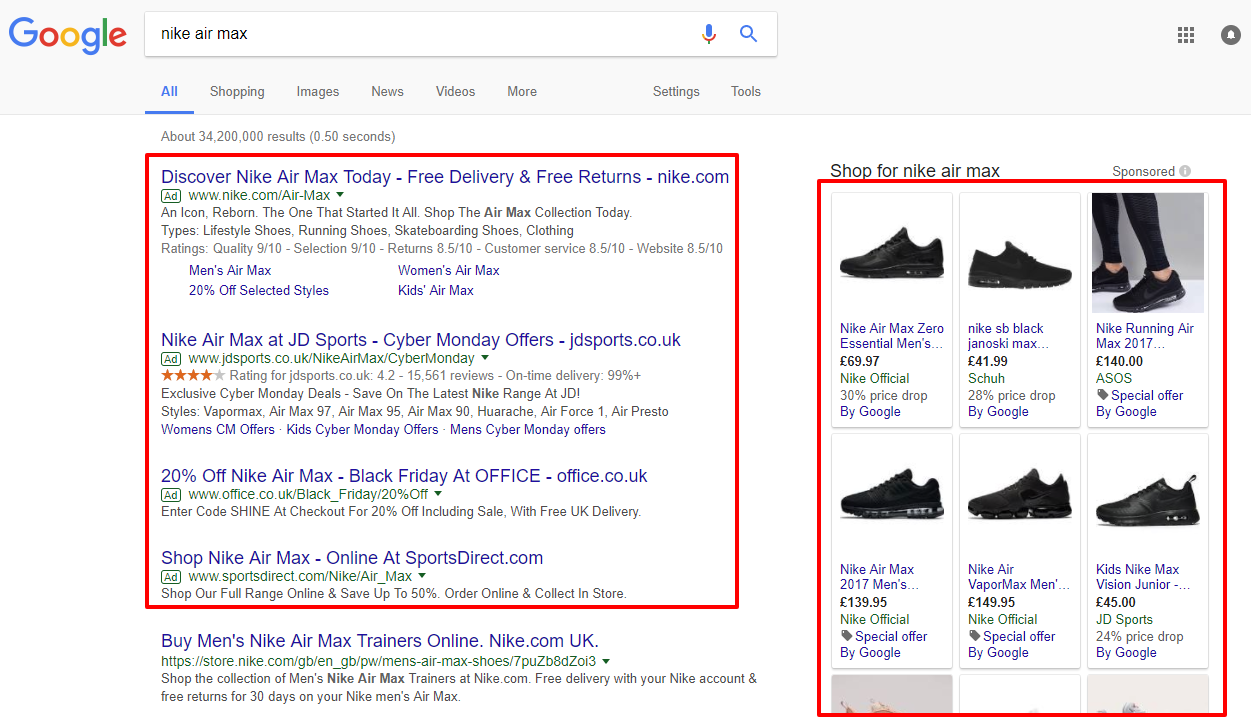
Before we look at trying to identify CPC change, it’s probably wise to identify some of the main variables that can impact your CPCs:
- Increased bids due to your competition trying to get better positions
- Increasing amount of competitors bidding
- Changes to your quality score
- Changes to ad copy affecting CTR
- Ad relevance to the query
- Changes to your landing page and relevance to your query
As you can see, there are many variables that can affect your CPCs over time, which makes tracking especially difficult. But what happens when there’s little or no competition? What happens when the relevancy of your advertisement in the platform’s eyes – for example, AdRank – should be strong? This is when I started thinking about brand campaigns, because of all the campaigns this is likely to be the easiest predictor of increasing costs.
[blockquote cite=””]Note: It’s a common misconception that Google will allow you to appear with your ad for 1p if no one else bids on that search term. However, Google would prefer to show no ads than poor quality ones that bid. The result is a base level of “quality” that you as an advertiser need to surpass for your ad to show; which is determined by all of the above variables as well as Max. CPC bid (defined as AdRank). Therefore, if Google sets what it thinks is a base level CPC to get your ad to show above the search results, you will have to pay that as a minimum for your ad to show, regardless of competition.[/blockquote]
“…the actual CPC when you appear above search results could be higher than the actual CPC if you appear beside search results, even if no other advertisers are immediately below you” – Google Adwords.
Arguably, Google constantly changes and streamlines what page one looks like to consumers, such as how much space is dedicated to ads and what elements are available for you to enrich your ads; so technically, the cost of appearing here should change too. The less real estate on page one for search ads (for example, Google removing the right-hand ad rail in early 2016), I expect would have an impact on the cost of being shown on that front page. But when the amount you pay is not predicated on demand, but is instead a combination of demand and “what Google thinks”; it begs the question: “how much more am I paying for the same traffic?”. Should this be the case for brand terms without much – or if any – competition?
Increasing CPCs for Brand Terms
As previously mentioned, one type of campaign that has fewer variables that would impact CPCs would be brand campaigns. Most – if not all – advertisers have a brand campaign (Owen discusses the merits of brand campaigns for more info), and they are likely to be regarded as extremely relevant with a high-quality score, less competition, and a stable top of page position. The main thing I noticed when looking at accounts with a lot of data, was that the brand CPCs on Google Search Network had been increasing in cost over the years. Please note that these aren’t “average estimated top of page bids”, but actual average cost per clicks.
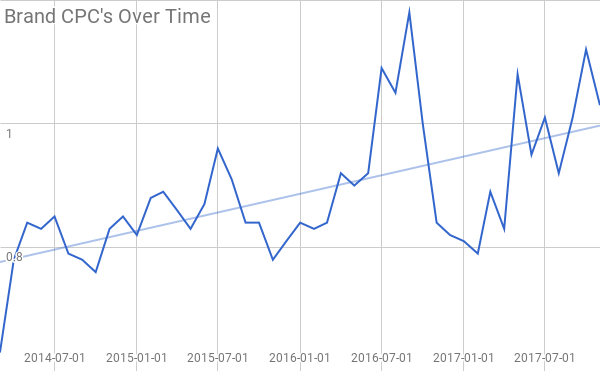
This would reinforce the theory that CPCs have increased over time (as Search Engine Land reported back in 2015) making the same brand click more expensive from one year to the next. This goes against what Google had been reporting in its yearly statement, that clicks have been rising but CPCs have been down.
Have CPCs Increased by Device?
As it has been widely reported that mobile device usage has increased over time, when looking at this data split by device, it shows if the increase in CPCs can be attributed to any device type.

With this data, I can see that interestingly, CPCs have actually decreased for desktop devices, but have increased on mobile and tablets. None more so than mobile devices.
By looking at a smaller date range (beginning of 2016 to present) I was able to capture a larger dataset to see if this trend was still represented.

The trend is still clearly visible with mobile and tablet devices seemingly increasing in CPCs whilst desktop decreases.
What Do Increases in CPCs Mean for Your Business?
If you’re a retailer that has brand campaigns, it would be wise to see if your data is showing the same trend. If you’re on a restricted budget, it would also be advisable to look at how much value (however you define this eg. time on page, conversion rate etc) these channels provide to your business.
Are Increasing CPCs Reflected in BingAds as Well?
Looking at a smaller date range, I was able to analyse the same businesses with the same brand campaigns and compare Google to Bing. This comes with an obvious caveat that although CPCs can be compared, the volume of traffic is significantly lower through Bing.
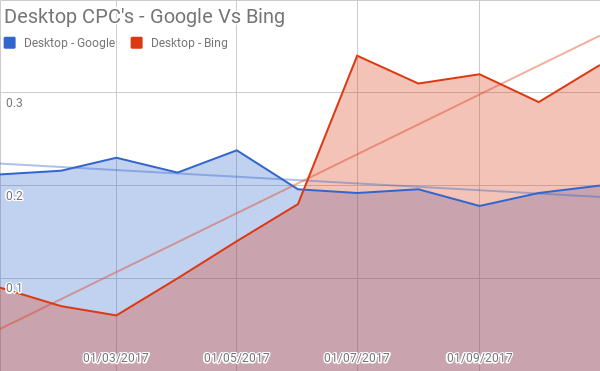

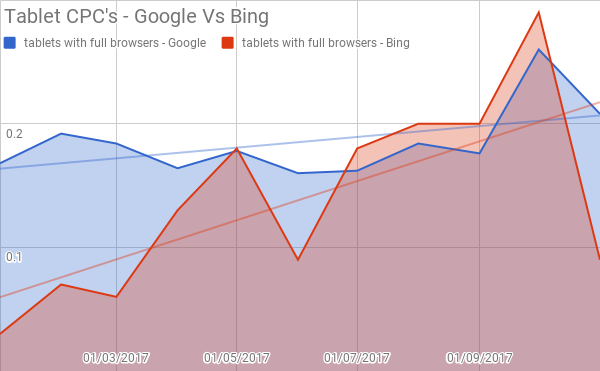
When comparing this data, we see that desktop CPCs are increasingly more expensive through BingAds compared to Google; but interestingly Mobile CPCs are cheaper and show a decreasing trend.
What Does Increasing CPCs Mean to My Business Overall?
Overall, as we see organic results slipping further below the fold, having your brand prominent above the fold using ads becomes increasingly more important. Being informed about the cost of each click over time means you can manage your budget accordingly. If you’re wanting to optimise that budget, I’d recommend reviewing how important devices are to your target market. If you’re looking for more bang for your buck you may want to look into Bing Ads, but be cautious about desktop CPCs.
There’s a wealth of experience here at Hallam, so if you would like to find out more about PPC, then please get in touch.
